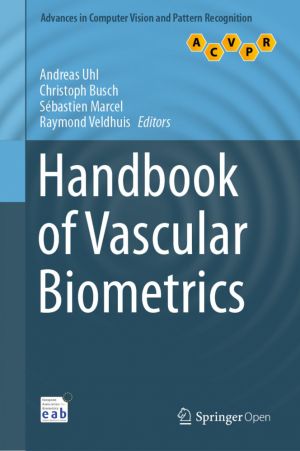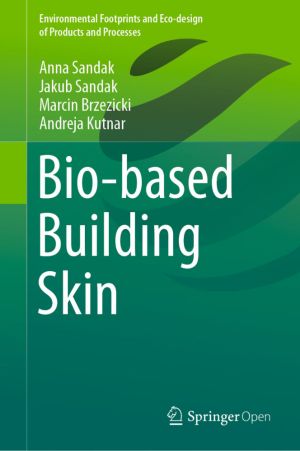Bio-based Building Skin
by Anna Sandak, Jakub Sandak, Marcin Brzezicki, Andreja Kutnar
DescriptionDetailsHashtagsReport an issue
This book provides a compendium of material properties, demonstrates several successful examples of bio-based materials' application in building facades, and offers ideas for new designs and novel solutions. It features a state-of-the-art review, addresses the latest trends in material selection, assembling systems, and innovative functions of facades in detail. Selected case studies on buildings from diverse locations are subsequently presented to demonstrate the successful implementation of various biomaterial solutions, which defines unique architectural styles and building functions. The structures, morphologies and aesthetic impressions related to bio-based building facades are discussed from the perspective of art and innovation; essential factors influencing the performance of materials with respect to functionality and safety are also presented. Special emphasis is placed on assessing the performance of a given facade throughout the service life of a building, and after its end. The book not only provides an excellent source of technical and scientific information, but also contributes to public awareness by demonstrating the benefits to be gained from the proper use of bio-based materials in facades. As such, it will appeal to a broad audience including architects, engineers, designers and building contractors.







Book Description
This book provides a compendium of material properties, demonstrates several successful examples of bio-based materials' application in building facades, and offers ideas for new designs and novel solutions. It features a state-of-the-art review, addresses the latest trends in material selection, assembling systems, and innovative functions of facades in detail. Selected case studies on buildings from diverse locations are subsequently presented to demonstrate the successful implementation of various biomaterial solutions, which defines unique architectural styles and building functions. The structures, morphologies and aesthetic impressions related to bio-based building facades are discussed from the perspective of art and innovation; essential factors influencing the performance of materials with respect to functionality and safety are also presented. Special emphasis is placed on assessing the performance of a given facade throughout the service life of a building, and after its end. The book not only provides an excellent source of technical and scientific information, but also contributes to public awareness by demonstrating the benefits to be gained from the proper use of bio-based materials in facades. As such, it will appeal to a broad audience including architects, engineers, designers and building contractors.
This open book is licensed under a Creative Commons License (CC BY). You can download Bio-based Building Skin ebook for free in PDF format (17.2 MB).
Book Details
Title
Bio-based Building Skin
Subject
Engineering and Technology
Publisher
Springer
Published
2019
Pages
193
Edition
1
Language
English
ISBN13
9789811337468
ISBN10
9811337462
ISBN13 Digital
9789811337475
ISBN10 Digital
9811337470
PDF Size
17.2 MB
License

Related Books

This open book addresses a variety of issues relating to bioethics, in order to initiate cross-cultural dialogue. Beginning with the history, it introduces various views on bioethics, based on specific experiences from Japan. It describes how Japan has been confronted with Western bioethics and the ethical issues new to this modern age, and how it ...

This book identifies and discusses biodiversity's contribution to physical, mental and spiritual health and wellbeing. Furthermore, the book identifies the implications of this relationship for nature conservation, public health, landscape architecture and urban planning – and considers the opportunities of nature-based solutions for climate...

Aquatic ecosystems are rich in biodiversity and home to a diverse array of species and habitats, providing a wide variety of benefits to human beings. Many of these valuable ecosystems are at risk of being irreversibly damaged by human activities and pressures, including pollution, contamination, invasive species, overfishing and climate change. Su...

This book is an introduction to the language of systems biology, which is spoken among many disciplines, from biology to engineering. Authors Thomas Sauter and Marco Albrecht draw on a multidisciplinary background and evidence-based learning to facilitate the understanding of biochemical networks, metabolic modeling and system dynamics.
Their pe...

This book presents a 'state of the science' synthesis of knowledge on the biodiversity of Angola, based on sources in peer-reviewed journals, in books and where appropriate, unpublished official reports. The book identifies Angola as one of the most biologically diverse countries in Africa, but notes that its fauna, flora, habitats and th...

This open access handbook provides the first comprehensive overview of biometrics exploiting the shape of human blood vessels for biometric recognition, i.e. vascular biometrics, including finger vein recognition, hand/palm vein recognition, retina recognition, and sclera recognition. After an introductory chapter summarizing the state of the art i...

